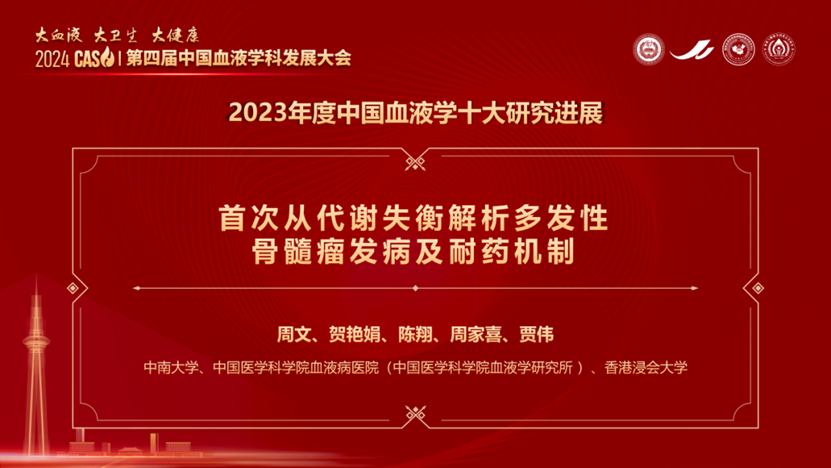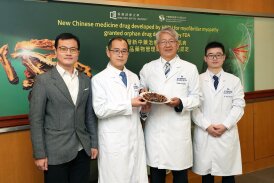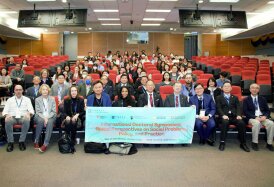


Multiple Myeloma is a type of blood cancer caused by the malignant transformation of plasma cells within the body. According to figures from the Hospital Authority's Hong Kong Cancer Registry, there were 367 new patients in 2021, with over 70% of the new cases being elderly individuals aged 65 or above, and nearly 55% being male. In recent years, the global incidence of Multiple Myeloma has been on the rise, and with the aging population in Mainland China, the incidence rate continues to climb.
Currently, there is no cure for Multiple Myeloma, and drug resistance and relapse are the main challenges in treating the disease.
Professor Jia Wei, Acting Dean of the HKBU School of Chinese Medicine and Director of the School’s Hong Kong Traditional Chinese Medicine Phenome Research Centre, along with researchers from the Cancer Research Institute of Central South University and Xiangya Hospital of Central South University, published a research paper in December last year in the prestigious international scientific journal Cell Metabolism. The paper, titled “Targeting gut microbial nitrogen recycling and cellular uptake of ammonium to improve bortezomib resistance in multiple myeloma,” explains how specific gut microbe Citrobacter freundii is related to metabolic changes and drug resistance in patients with Multiple Myeloma. The study indicates that the use of diuretics like furosemide or certain probiotics may help combat this drug resistance, inspiring new strategies for treating Multiple Myeloma and bringing new hope to patients.
This research is the first to discover a new mechanism of drug resistance in Multiple Myeloma induced by nitrogen cycling gut microbiota and host metabolism interaction through ammonia, providing new intervention targets and clinical strategies for the treatment of drug resistance and relapse in Multiple Myeloma. The research was selected by the China Hematology Development Conference as one of the “Top Ten Advancements in Chinese Hematology Research for the Year 2023.”

This study is the first to discover a new mechanism by which nitrogen-cycling gut microbiota and host metabolism interaction induces drug resistance in Multiple Myeloma through ammonia.

The research was selected by the China Hematology Development Conference as one of the “Top Ten Advancements in Chinese Hematology Research for the Year 2023.”



